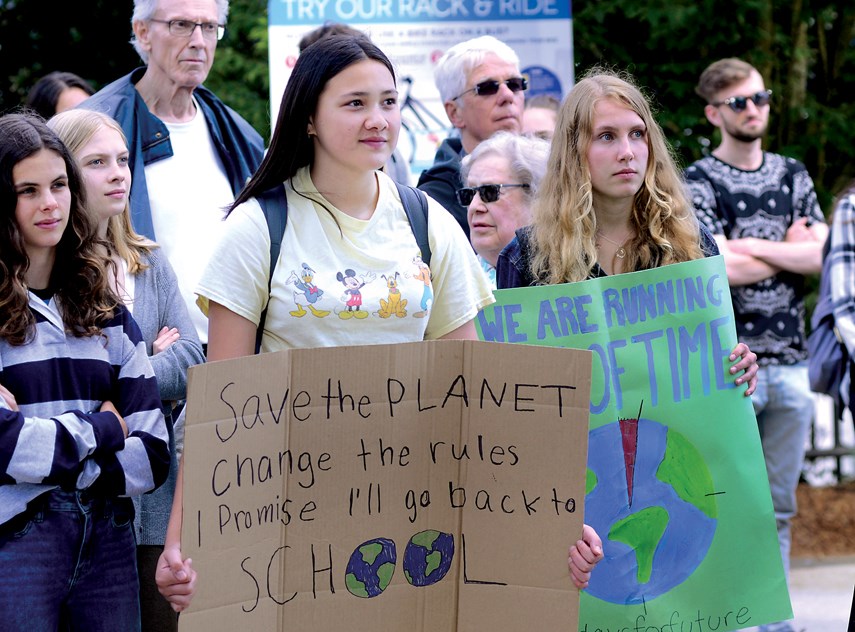Candidates from North and West Vancouver ridings have shared their thoughts on climate change, ahead of this weekend’s provincial election.
For Our Kids North Vancouver chapter, a network of parents and grandparents across Canada fighting for a better world for our kids and grandkids, took it upon themselves to ask each of the MLA candidates in the West Vancouver-Capilano, North Vancouver-Lonsdale and North Vancouver-Seymour ridings how they plan to tackle climate change.
The network’s vision is “for a green, equitable, and just world where our children and grandchildren grow up safe and healthy.”
So, they asked candidates three big questions centred around addressing climate emergencies, lowering emissions and building sustainability to help the community to determine which candidates would make the biggest impact for the enviroment in the future.
“We need to ask, who will take on this challenge with the bold and ambitious leadership we need? Protecting our planet shouldn’t be a partisan issue that divides us,” a For Our Kids release stated.
“We need to come together and debate the solutions, so let’s make sure we have the right leaders to help us do that.”
For Our Kids noted that the most common topic raised throughout the interviews was transportation, with many candidates supporting a need for improvement to public transit and a move to electrification.
North Vancouver-Lonsdale BC NDP incumbent Bowinn Ma and West Vancouver-Capilano BC Liberal candidate Karin Kirkpatrick stood out with more comprehensive answers on building code and retrofitting existing houses and buildings.
“As a party, we are already requiring new buildings and retrofits to be more energy efficient and cleaner – every new building constructed in B.C. must be net-zero ready by 2032, but we will further accelerate energy efficiency retrofits for both residential and commercial buildings,” said Ma.
“Some municipalities have already been trying to ban single use plastics for a while, but were told by the courts that they needed help from the province. We answered the call and gave permission to municipalities to implement bylaws to address this issue, and in addition, a John Horgan NDP government will begin the phase-out of single use plastics provincewide.”
Meanwhile, Kilpatrick said to tackle the climate emergency on the North Shore three key areas needed to be addressed.
“We need to change the way we construct buildings; we need to change the way we commute, and we need to change the way we consume,” she said.
“Unless a net-zero commitment involves multiple stakeholders at all levels of government, it will be difficult to execute on. I will work to support the climate change targets set by the municipalities on the North Shore by working collaboratively with all levels of government to ensure we have accountability.”
West Vancouver-Capilano BC Greens candidate Rasoul Narimani and North-Vancouver-Seymour BC Greens candidate Harrison Johnston had interesting independent policy plans on gas-free zones and lowering the voting age.
“I would like to create a gas-free zone for the North Shore area,” said Narimani.
“This project would have different stages. At the beginning we could start with the Edgemont Village area to be a gas-free zone. This phase could take up to 10 years. At the end of this phase, not only would all the residents of the area have switched to electric cars, but all the vehicles that need to have access to that area, such as Canada Post trucks, would have adopted electric vehicles.”
The For Our Kids group highlighted that some answers raised red flags for them. In particular, North Vancouver-Seymour Libertarian candidate Clayton Welwood questioning the practicality of having bold emission targets, and North Vancouver-Lonsdale BC Liberal candidate Lyn Anglin pushing for more research, which they said “unfortunately doesn’t acknowledge the urgency of the challenge ahead.”
"It’s not that the [2030] target is intimidating, it’s that it’s unachievable," Welwood said.
"The only way it is conceivably possible to cut global emission in half is by taking away the only reliable energy source (fossil fuels) that is currently available to billions of people, and replacing it with nothing, or sources of energy that are not reliable."
When asked what came to mind when thinking about the climate crisis and our responsibility to create a safe and sustainable future for our kids, Ma sent a strong message: “We do not inherit the earth from our ancestors; we borrow it from our children.”
You can read the full candidate Q&A below:



